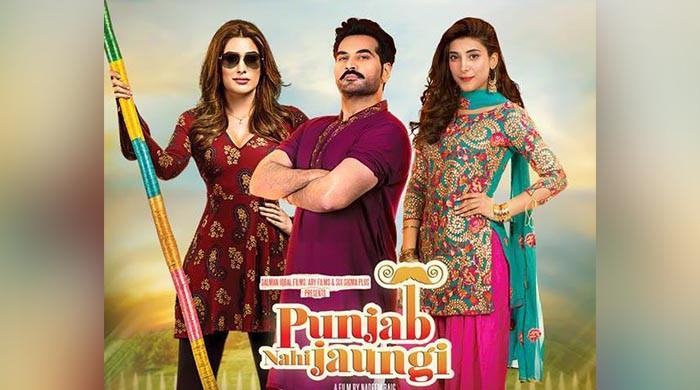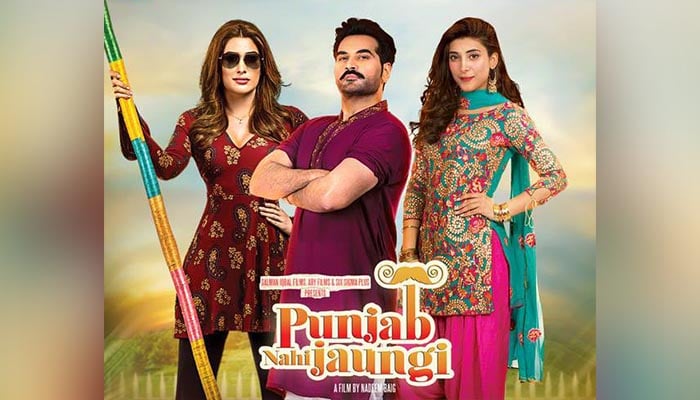

Mai Punjab Nahi Jaungi is a problematic film. It is an old fashioned romantic comedy, with little romance and more old-fashioned stereotypes.
Pakistan's cinema has come a long way. Our embryonic industry is now full throttle onto the road of revival, where movies like Nadeem Baig's Main Punjab Nahi Jaungi just do not, and should not, fit in.
Now, what really are the components of revival? If it's sensibility of technique and cinematography then we are definitely on the right path. MPNJ's camera brought to life the beautiful and dazzling Noor Mahal in Bahawalpur, contrasting it with the expansive agricultural lands in Faisalabad. But if revivals are about storytelling and scriptwriting, MPNJ did our industry a disservice.
The film is one made by men, for men.
In a country where more than 250 cases of domestic abuse were reported in 2016 alone, while many more went unreported, here is a production that intentionally trivializes physical abuse and goes even further to use it as a comic relief.
MPNJ opens as a formulaic love story between Fawad Khagga (Humayun Saeed), a rich feudal lord from Faisalabad, and Amal (Mehwish Hayat) - whose last name was just not important for the writers - a modern, basketball playing, ambitious woman.
Khagga in search of his Heer, and in desperate need to be a tragic hero, takes one look at Amal and falls hopelessly in love. She rejects him. He tries again, this time more aggressively. Because you know, once a woman says "No," it means, "Yes."
Finally, Amal responds, and breaks off a rather healthy and stable relationship with her current boyfriend, after Khagga promises to write all his assets in her name. Their intrusive family members celebrate the union between two people they manipulate to bring together.
A song or two later, the two tie the knot, and many instances later, Khagga is found in the arms of another woman, Durdana (Urwa Hocane) - last name also not important. An argument between the two leads to the male protagonist slapping the female lead. Though the other characters in the film condemn the abuse, at the same time Khalil-ur-Rehman Qamar, the scriptwriter, attempts to add humour to the situation by exposing a family history of domestic abuse and womanizing.
Domestic abuse is not funny in real life, and it is not funny on screen.
MPNJ is teeming with stereotypes that women in our society are struggling to fight. And its messages like these that hurdle a society's progression.
There's an urgent need for Pakistani filmmakers to write, direct and fund sensible cinema with sensitive storylines. Films are an effective tool for changing mindsets, rejecting stereotypes and showing a world of endless possibilities. Instead, Mai Punjab Nahi Jaungi did quite the opposite. Walking into a packed-to-capacity theatre, I was prepared to watch a feel-good movie, but instead I walked out feeling insulted.
Khan is a filmmaker based in Lahore
Views of the author do not necessarily reflect the views or editorial policy of Geo News
No comments:
Post a Comment